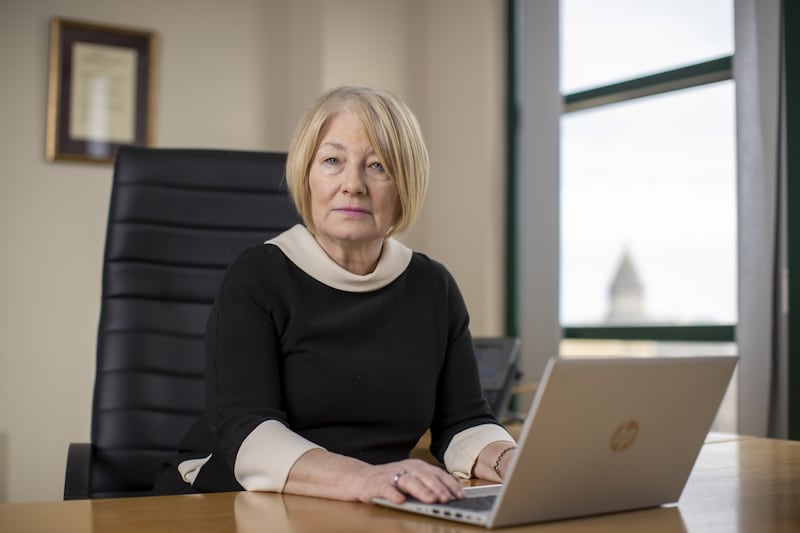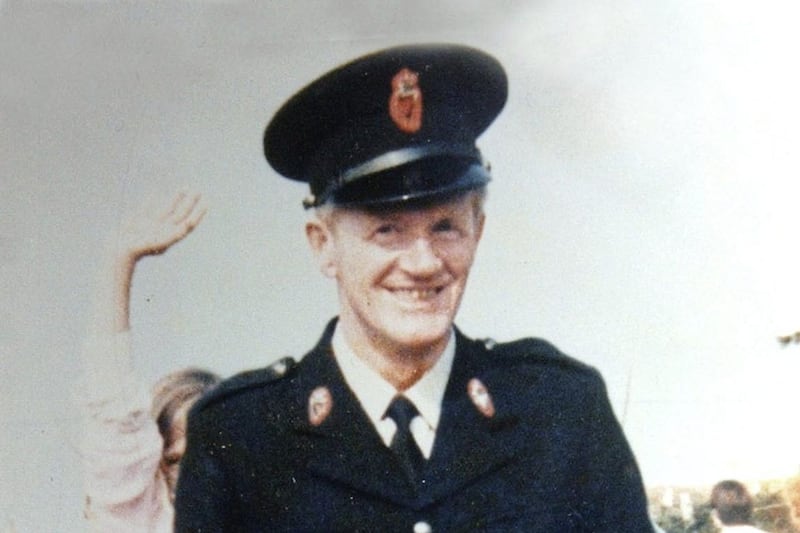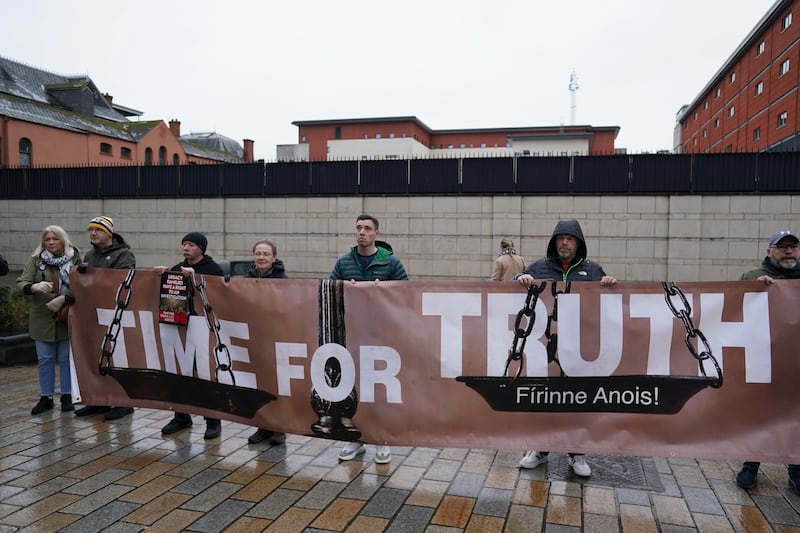As a child in the early 1970s living in rural Co Down we were insulated from the the conflict raging in Belfast and Derry.
That changed in October 1973 when Banbridge man Pat Campbell was murdered by the UVF in front of his family.
I remember my parents and relatives conversing in fearful sombre tones about the atrocity.
Pat’s widow Margaret was in the same class as my mother in Dromore school and his sister was married to a great uncle, so there was an added emotional layer.
His killing signposted the arrival of the hitherto alien Troubles into my childhood.
Shortly afterwards, my family moved from the country to Banbridge where I met Pat’s sons Paddy and Stephen at the GAA club.
A photo of an U-12 team shows Stephen knelling to my right (I have the ball).

The happy smiles and mad hair portray an obliviousness to another horrific act of terrorism perpetrated just outside Banbridge.
The Miami Showband massacre occurred a week before this photo was taken.
Pat’s killer‚ Robin Jackson was also involved. Margaret picked him out at an ID parade but prosecutors claimed there were issues with her identification and dropped murder charges against him.
That caused distress for Margaret over the ensuing years as Jackson went on an industrial scale killing spree. The legacy of Pat Campbell’s murder identification parade debacle became central to Margaret’s justice campaign.
40 years later I was privileged to act for her in connection with the failed murder investigation. Given strong allegations of loyalist-state collusion and cover up, this was always going to be difficult. However the Edward Barnard court finding of state collusion with `the Glenanne Gang’ and Jon Boutcher’s Denton inquiry gave encouragement.
Margaret’s humility and quietly spoken demeanour masked an absolute determination to do the right thing by her husband. She looked me in the eye when insisting I promise her to sort the case before she would pass away. I gave her my word but I worried time wasn’t on our side.
Starting a case over 40 years after the killing created limitation difficulties plus age and infirmity weighed heavily against her.
After applying for document discovery, the state tried to strike the case out by saying they needed more details. Their queries belied their having the very information they wanted us to supply.
For example, a version of a HET report never seen before had recorded Jackson saying after the ID parade, “I am in trouble now because Mrs Campbell would remember the colour of every hair on the man’s head who had been at her door and shot her husband“.
We then had difficult news that Margaret was diagnosed with a life limiting illness.
A further aggravating feature was an attempt to stop listing her case. To circumvent this impasse we took the unusual step of seeking a trial listing without access to sensitive discovery material. My promise to Margaret was in jeopardy of unravelling if we had to wait until the final outworkings of a dense discovery process but the judge was having none of it and Margaret got her court date.

We reached hearing in November 2022. The lead up was tense and difficult particularly given the realisation that civil litigation on conflict-related issues was never going to be a complete truth recovery process.
Material served late in the day helped provide additional information which Margaret’s family had never seen before.
Settlement talks highlighted the discomfort in quantifying the loss of a life in financial terms as money could never compensate for such a terrible loss. Through it all Margaret engaged on the legals with fortitude and dignity before a settlement was reached.
She had waited a long time for this day to arrive when she could tell media outside court that she was “relieved her legal battle was at an end”. She also had a withering riposte for the state when saying many questions around Pat’s murder remained unanswered.
I wasn’t quite prepared for the emotional moment outside court when Margaret gripped my arm, held me closely and whispered quietly her sincere thanks for the outcome. She didn’t get an admission of liability nor an apology but she did get vindication through a settlement against the MOD and the PSNI.
Her daughter Donna confided in me afterwards that the ending of the case brought her inner peace.
The resolution went a long way to restoring a much needed balance to the narrative on the outworkings of that notorious identification parade. Her civil case provided her with a settled legacy narrative as well as endorsing her claim that the authorities failed her and her family.

Margaret has left a lasting legacy not just through her legal crusade but more memorably via her powerful contribution on Sean Murray’s documentary Unquiet Graves.
I defy anyone to watch her and not be moved by the powerful resonance of her words. She was mesmeric and was at the apex of all the moving testimonies on that production. Like so many other conflict bereaved she was thrust into having to agitate for justice for a loved one.
A quietly spoken country woman leading an ordinary family life was cast into a horrific extraordinary world of conflict. Through her bravery and example she will always be representative of so many similarly Troubles bereaved. This lovely lady leaves a lasting legacy. RIP Margaret. It was a privilege to represent you.








